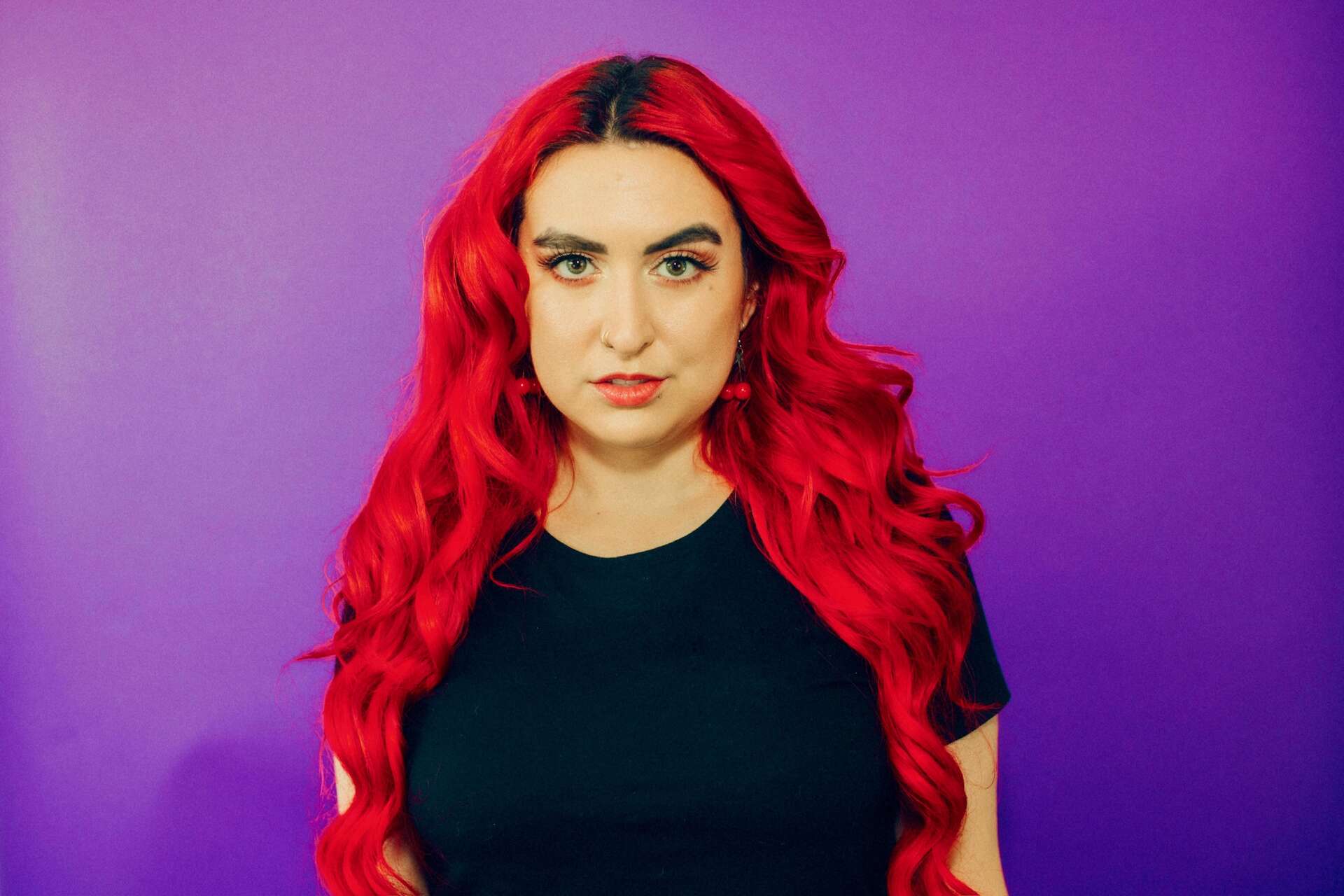We’re excited to introduce you to the always interesting and insightful K. Broch. We hope you’ll enjoy our conversation with K. below.
What did your parents do right and how has that impacted you in your life and career? Maybe you can share a story (or stories) that illustrate the things they did right and the impact they had on you and your journey.
My parents were never married and they grew up in very different circumstances. My dad is from a family who really valued education, and drilled the importance of learning and business into me from a young age. I only saw him for brief periods of time growing up, but a part of him I acquired was his storytelling abilities and dry sense of humor. I saw the way he could charm and entertain anyone with his words, incredibly expressive facials, and the physicality he used when really getting into a tale. It was as if I was practicing my entire life how to convey a succinct story, and almost pitch it to someone else to win them over. At the same time, he was very logical in business ventures, so he wasn’t a fan of me pursuing arts as a career. Therefore, I got a basic sales and marketing degree from a reputable university, which wasn’t my favorite, but begrudgingly it does help me to this day in my TV writing and podcasting ventures.
On the other hand, my mom was a Mexican-American woman who started dancing professionally as a teenager. She was a gifted painter, poet, and eventually food designer. She really struggled to keep it together when it came to “average” jobs. She often worked several at a time when I was growing up, and her entire family always busted their asses just to get by. I was the first person on my maternal side to graduate from college, and although it didn’t seem like a big deal to me, it definitely was a sense of pride for them after decades of hard work in this country. It was nice to have a mom who encouraged me to play instruments, to dance, to put me in art programs in the summer, and who was interested in fashion and makeup. She has a way of making everything around her aesthetically pleasing and “painting a picture” has always been important to her. I think it allowed me to see the world in a different way, and that even something as simple as a well paired outfit could bring you joy. It paved the way for me to become a makeup artist, and now to direct and write in a very visual way.
For folks who may not have read about you before, can you please tell our readers about yourself, how you got into your industry / business / discipline / craft etc, what type of products/services/creative works you provide, what problems you solve for your clients and/or what you think sets you apart from others. What are you most proud of and what are the main things you want potential clients/followers/fans to know about you/your brand/your work/ etc.
I’m K. (like the letter) Broch (like the pins my abuela wears). I’m a queer, mixed, dark comedy writer from West Michigan originally, now living in LA. I was raised by my single Mexican-American mother, who worked many jobs and often didn’t have childcare, so she’d sometimes bring me to her best friend’s gay bar, and the drag queens became my babysitters.
Although I have the hair of Ariel, I’ve never really loved princesses that much. Instead I’ve always been interested in what makes a villain and finding the good in those who do bad things, because growing up I dabbled in crime just a smidge, but got my ankle tether off just in time to graduate from Michigan State University and create my own redemption story. A common theme in my writing.
A near-death experience pushed me to start living and move to LA to pursue writing. Because of all the different lives I lived, my brand Only Child Syndrome started as a memoir, but has since moved to a production company, which houses the podcast I produce and cohost, called She Said…Let’s! Which tells stories of artists who overcame fears and the women in film & TV who empowered them to do so. I was recently a 2023 NHMC Series Scriptwriters fellow, and am currently writing and directing for a dating sketch show, Single Riders Only. I often tell stories of complex women in an identity crisis, always finding the good in those who do bad things.
OCS Productions was a way for me to stop waiting for decision makers to say “yes” to me, and instead create the stories I wanted to tell. It’s been a slower start than I anticipated, but even with the several shorts and webseries that’re on the back burner, our content continues to grow. It was also difficult for me to find the right artists to partner with, the ones that have similar drives as myself. I won’t put out anything I don’t deeply believe in or care about, so sometimes I can be my own worst enemy when it comes to perfectionism of a project. Lots of unforeseen things can go wrong, and I think I’ve become better at rolling with the punches the more things we make.
How did you learn to do what you do? Knowing what you know now, what could you have done to speed up your learning process? What skills do you think were most essential? What obstacles stood in the way of learning more?
An annoying answer is that you learn by doing, but here I am saying just that. It all began with a love of reading, just eating up every book I could find. It helped me figure out what I wanted to emulate, and also the kind of writer I didn’t want to be. Eventually, plays were thrown in the mix because I thought I wanted to be an actor, but being exposed to scripts was key to the artist I am now.
Then I just tried to do it, I wrote short stories about my life, scripts to escape the world around me, and poems to express the darkness I’ve always had in me. I didn’t own my comedic voice until a little later in life, so everything I created as a kid and a teenager was very “emo,” if you will. I was a scene kid after all, shout out to Warped Tour and punk rock music for shaping me.
Writing was more of a hobby for me, but I wish I’d taken it more seriously and took some classes or workshops sooner than I did. Of course I had English class, but I was always told my essays and what not were too conversational, and grammar and punctuation were not my strong suit. Feel free to drag me on how I wrote this interview, because they still aren’t. However, my voice really lent itself to screenplays.
When I got serious about my writing career, I took a ton of nonfiction classes from Writing Pad, started submitting my personal essays to publications, and was blogging more than ever. Then one of my nonfiction teachers, who was also a TV producer, suggested I take chapters from my memoir (you can find some chapters at ocsbook.com), and convert them into TV pilots. It was really freeing to play with and dramatize things that happened to me or people in my life, and I was hooked.
I try to read 100 scripts a year, but usually end up in the 60-80 range. Then I watch the shows and pick them apart structurally. Knowing what goes into a pilot or episode of TV then helps you write the best version of your own story. Writing spec scripts of an existing show also helps in the process, although I’m aware they are pretty much extinct as far as being used as writing samples nowadays. They force you to look at tone, the world, learn character voices, set pieces, and even joke patterns in comedy, which is what I write. Applying for fellowships every year helped me hone my branding and personal essay skills. It also forces you to write 1-2 new pilots a year, which goes back to the learn by doing shebang we discussed up top.
I’ve read about every book about screenwriting that exists, listened to podcasts that feature writers, watch Q&A’s and mentorship lectures on the business and art of writing, and talked to working writers about their journey in this often turbulent business. All that while taking classes (highly recommend Script Anatomy), which helped me with deadlines. If I don’t have a date something is due, then I’ll procrastinate doing it. If you don’t have the funds to take a class, then find a writing group. You’ll never get better by keeping your work to yourself, it’s really important to get reads and notes from writer’s who have more experience or are farther along in their career than you. Always surround yourself with people who’re better than you that you can learn from, or you’ll never grow. For years I searched for my group of people who enhanced my craft, and I can finally say I’m surrounded by so many talented and hardworking filmmakers and creatives that not only inspire me, but make me the best version of me.
What’s been the most meaningful project you’ve worked on? Tell us the backstory so we understand circumstances/context and why it’s meaningful to you.
Recently, I graduated from the NHMC Series Scriptwriters Fellowship, and it was somewhat of a crash course on being a professional TV writer. We met daily, pitching ourselves and our projects to mentors, guest speakers, and previous alumni. The program ran as a mock writer’s room, and I was able to complete a new half hour comedy to add to my portfolio. There’d been a story I was mulling over for years, but couldn’t find the best way to tell it, and this seemed like the perfect opportunity to do so.
My mom wasn’t that close to her family growing up, but she did have friends who were chosen family. One of those individuals was her best friend, Ricky, a gay man who would become one of my favorite people ever. He owned one of the biggest gay bars in West Michigan, and I spent a lot of time there growing up. The 90s were definitely a different time in child rearing, but I’m so thankful for this part of my backstory. Ricky gave me all the dance remixes of the popular divas, I learned how to dance in his studio, his drag queens helped me plan themes for my birthday parties, and overall I felt at home in the queer community.
From that experience, came my pilot about a struggling single mom who is evicted and moves into her best friend’s gay bar. Where the drag queens become her “tom boy” daughter’s babysitters, and the mother must find a way to save the bar from it’s biggest competitor. I wanted to explore how gender roles affected me and those around me, and also immortalize these characters that meant so much to me growing up. Ricky passed away in 2020, and his partner in 2023, but the bar still remains and will always be a place young queers can feel safe and call home.
Tell us the story of a risk you’ve taken – it could be a big, life changing risk or a small risk. Either way, paint the picture for us, tell us the backstory and all the relevant details so we can fully understand the context and circumstances around when and why you took the risk and tell us how it turned out
It only feels right that I highlight the podcast I produce and cohost with Hannah Horwatt called, She Said…Let’s! The main question the pod is based around is, what was something you were scared to do in your film & TV career, and who was the woman who empowered you to go for it. I’ve always been a big risk taker, and was interested in what made others take the leap. Also, I wanted to bring more stories of the female cheerleaders in all our lives to the forefront.
However, I wasn’t that thrilled about being a podcaster, at first. I’ve had ADHD my whole life, and always struggled to absorb things I cannot see, aka podcast audio. On top of that, I get easily irritated by long-winded storytelling or hearing the same types of questions repeatedly. That was a lot of what I’d experienced in podcasts I listened to, so I decided they weren’t for me. However, my friend Hannah was obsessed with them, and had one previously that was disbanding. She had a little studio, the equipment and podcast producer experience, so after much begging she managed to connive me into doing one with her.
As a writer, I thought of segments that would flex my storytelling, pitching, and comedy skills. While also giving more people access to bits of me that maybe they didn’t know before. Hannah’s an actor, and it gave her a way to learn more about writing and producing something that was essentially about her, instead of someone else’s project. We are kind of yin and yang to one another, which creates a fun and silly dynamic for our listeners and guests who’re featured.
Through the pod, I’ve become more comfortable being on camera, riffing off ideas, and have met so many new creatives that I’ll be collaborating with in the future. We have a little “Let’s” collective now, which we are bringing together for a new project spring of 2024. To stay in the know about that, make sure to follow us on all social media @ocsproductions.
Contact information:
Website: https://linktr.ee/ocsproductions
Instagram: https://www.instagram.com/ocsproductions/
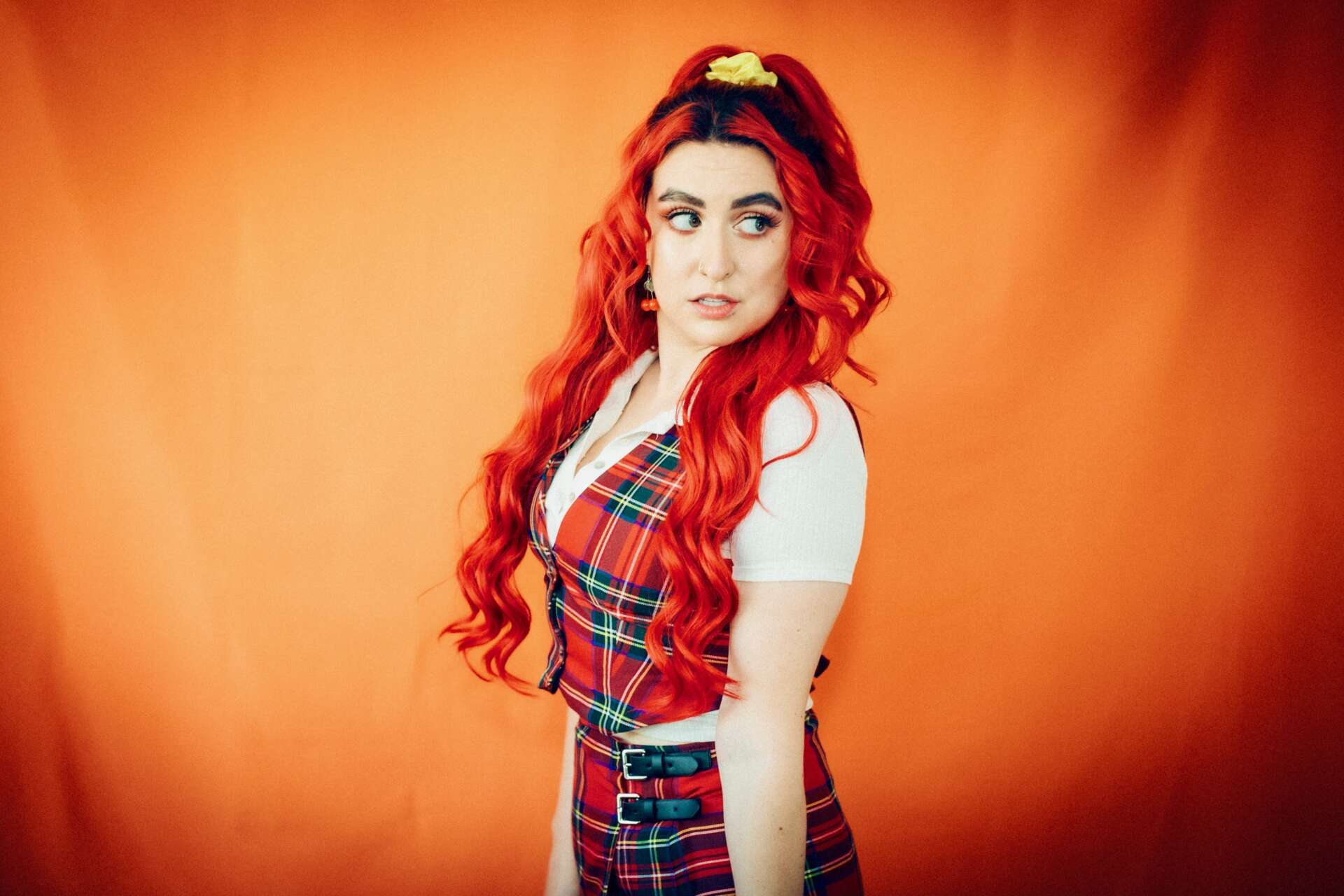
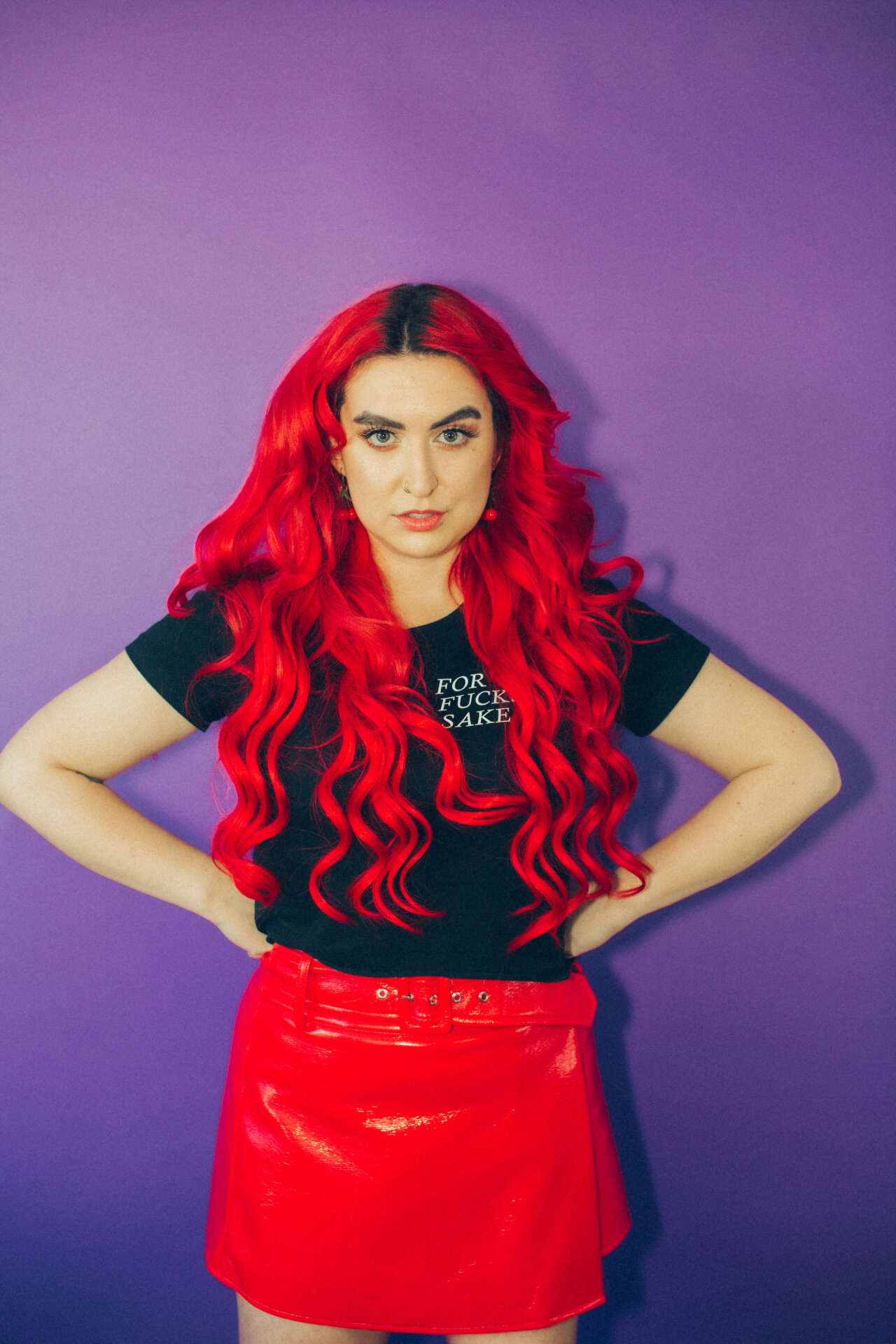
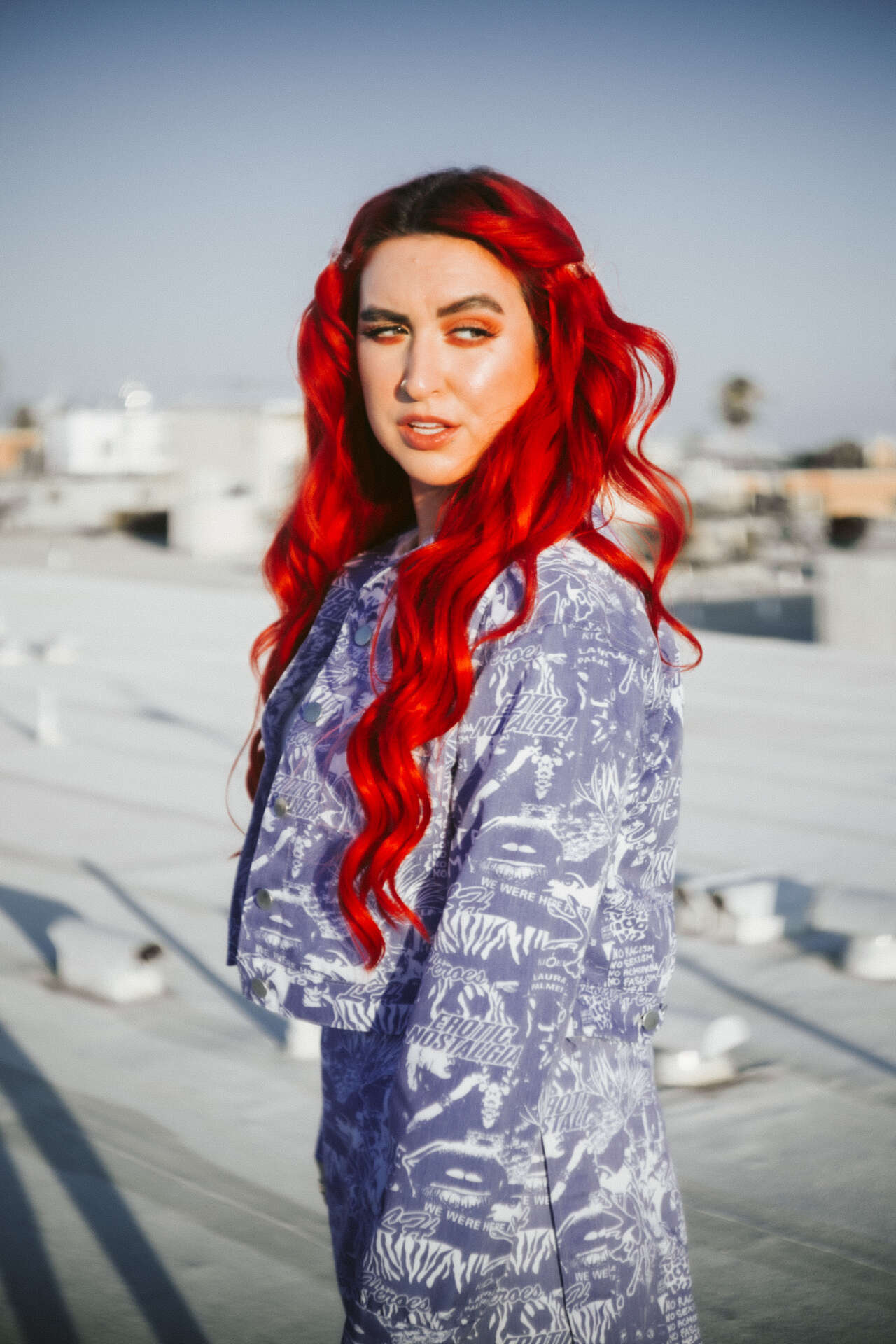
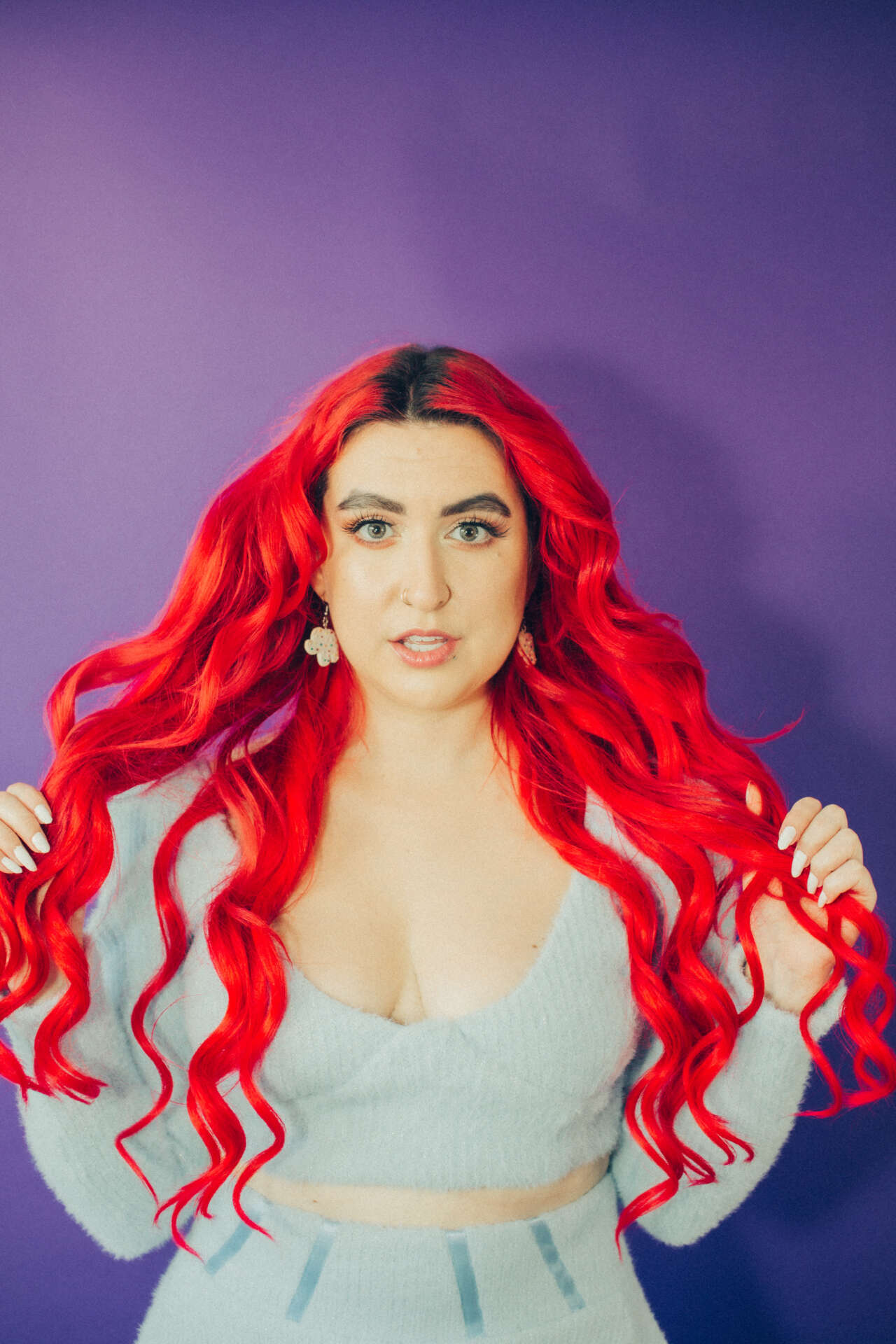
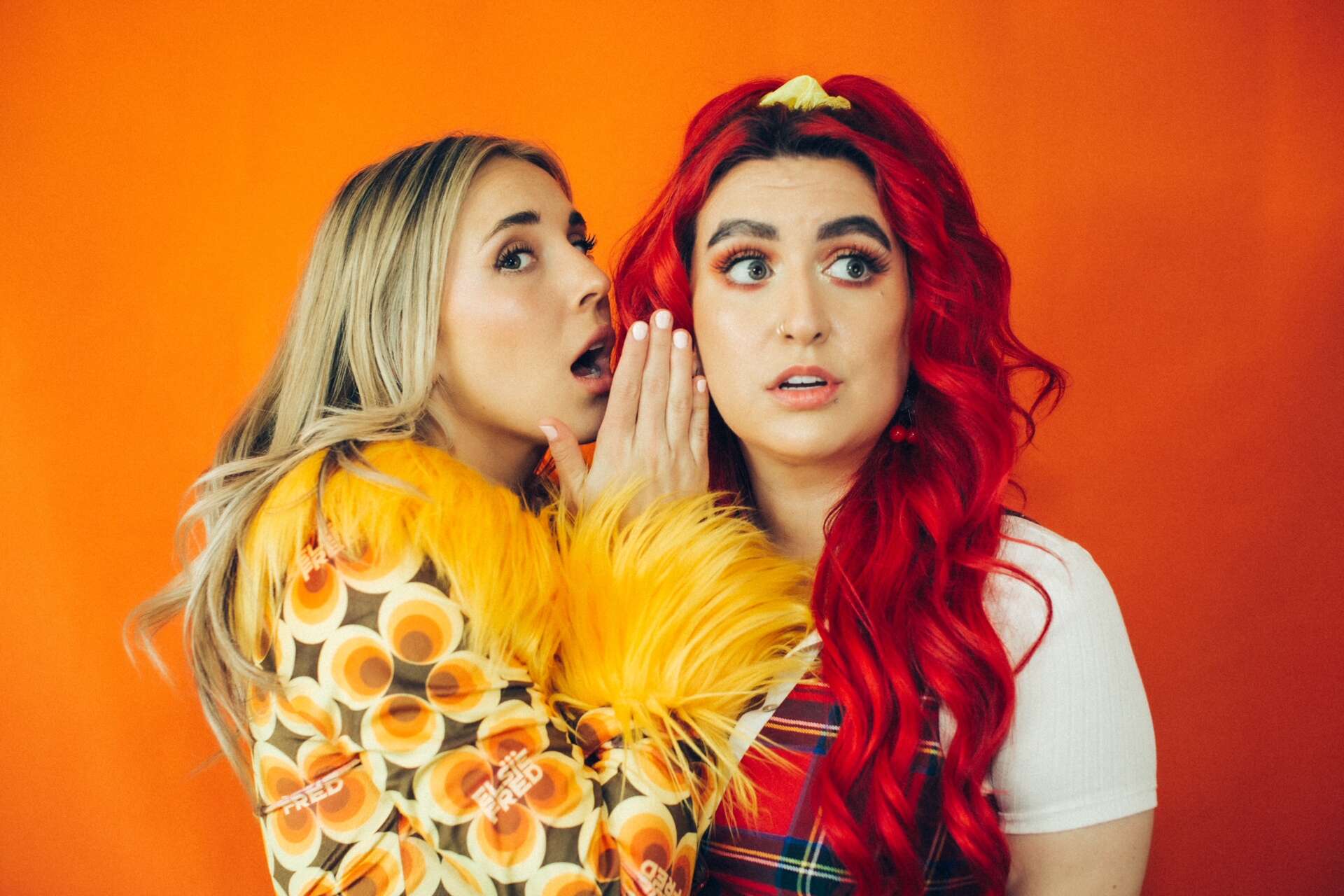
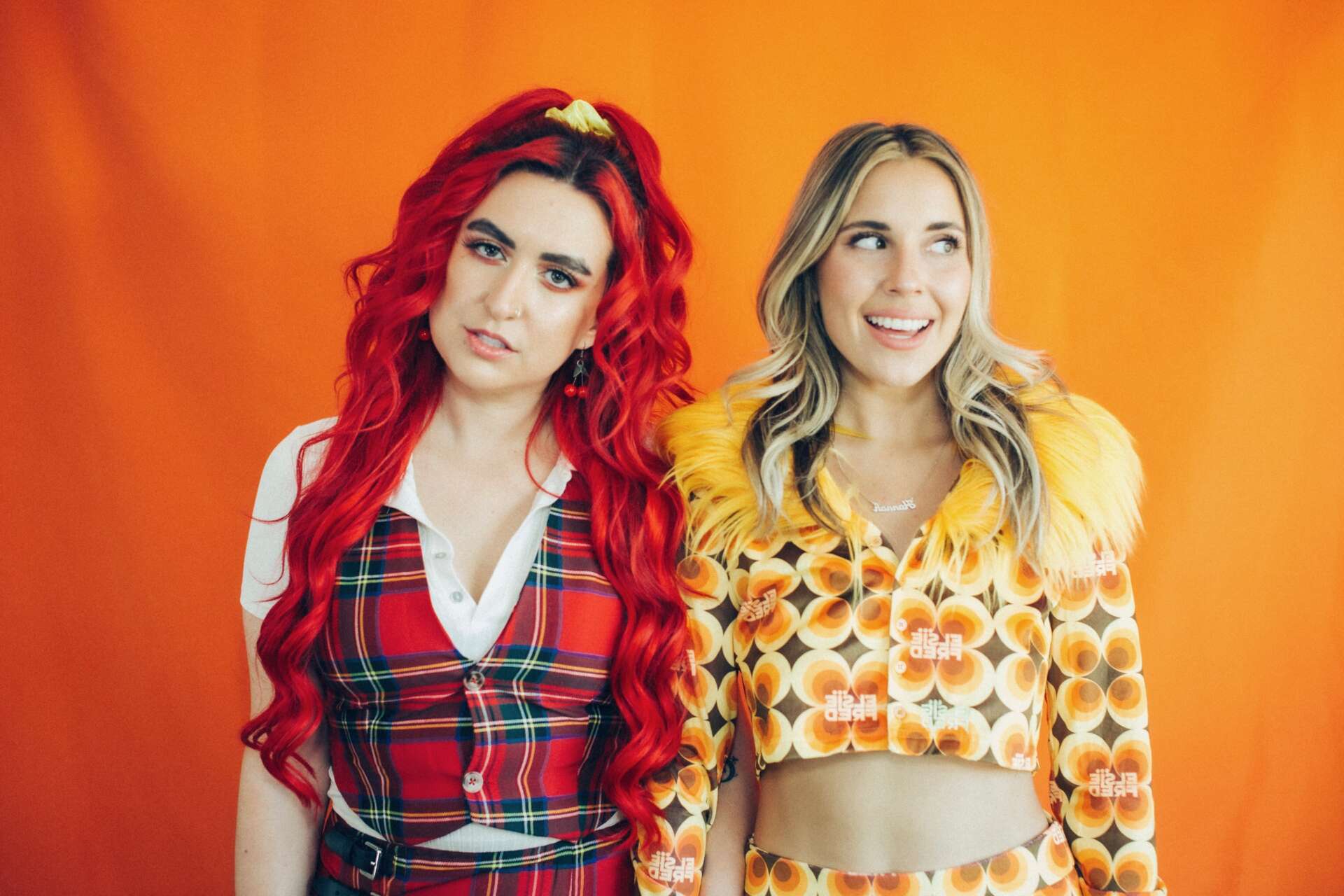
Image Credits:
Eleanor Argyropoulos
Suggest a Story: CanvasRebel is built on recommendations from the community; it’s how we uncover hidden gems, so if you or someone you know deserves recognition please let us know here.


